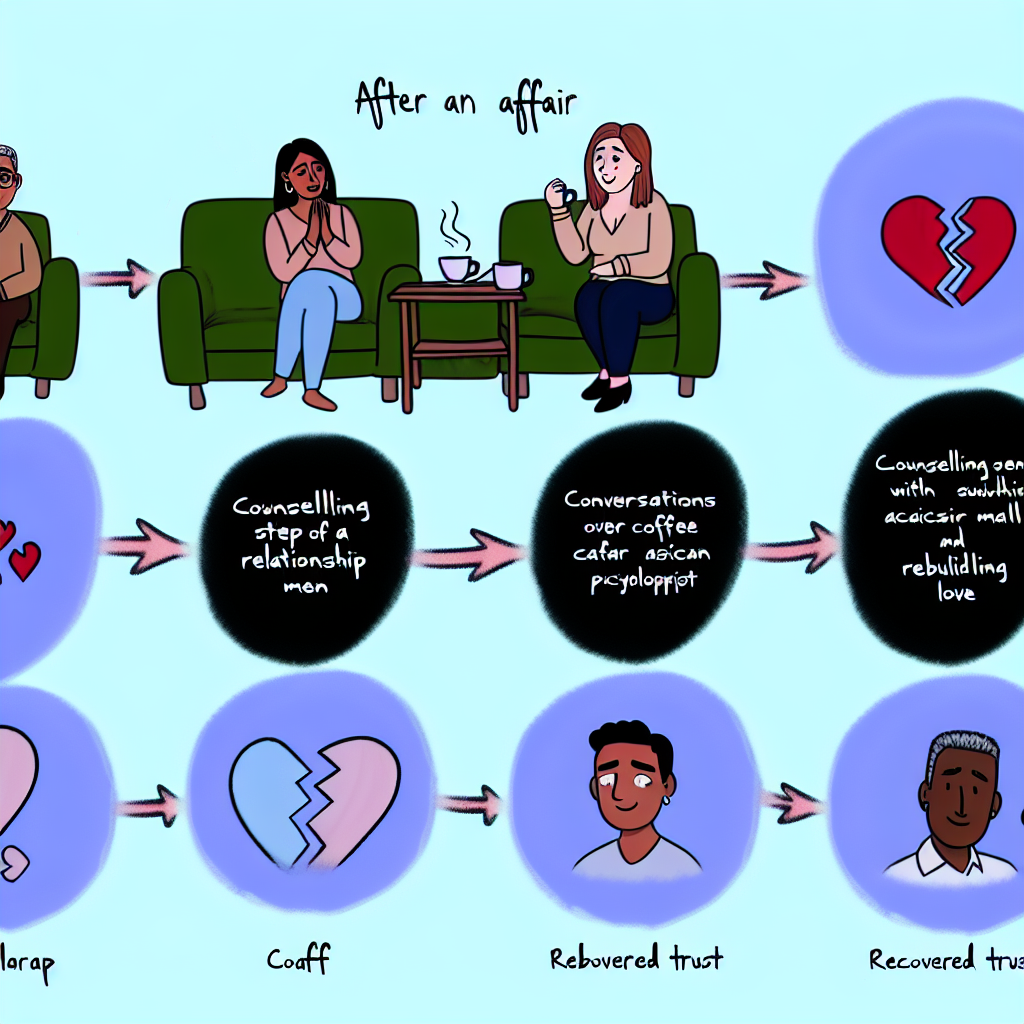The Affair Aftermath Timeline: Research-Based Recovery Milestones After Infidelity
Introduction: Navigating the Devastation of Infidelity
Infidelity is one of the most devastating experiences a couple can face. The revelation of a partner’s betrayal can trigger intense emotional turmoil, shaking the very foundation of trust, security, and intimacy. For the betrayed partner, the pain can feel insurmountable, while the unfaithful party may struggle with guilt, remorse, and uncertainty about how to repair the damage. Recovering from an affair is not a linear process, and the timeline for healing varies based on personal circumstances, relationship history, and commitment to reconciliation or separation.
While some relationships end immediately after the discovery of an affair, others strive to rebuild despite the heartbreak. Studies suggest that overcoming infidelity requires deliberate effort, patience, and often professional guidance. According to Dr. Shirley Glass, a psychologist specializing in infidelity research, recovery involves stages of shock, emotional processing, rebuilding trust, and redefining the relationship or choosing to move on. The emotional toll is profound, but those who actively engage in healing can emerge stronger, either as an individual or as a couple.
Understanding the stages of affair recovery can provide much-needed perspective to those navigating this painful journey. While emotions may seem overwhelming at first, time and intentional actions toward healing can foster emotional clarity. This article outlines a research-based timeline for the aftermath of an affair, breaking down essential recovery milestones. Whether you are the betrayed partner, the unfaithful spouse, or an individual trying to regain stability after infidelity, knowing what to expect can help guide you through this difficult period.
In this article, we’ll explore key phases of healing through research-backed insights. We’ll also examine professional studies that illuminate the psychological and emotional stages following infidelity. By understanding these milestones, singles and couples alike can develop compassionate and informed strategies to reclaim their happiness and rebuild trust—whether within their relationships or themselves.
Research-Based Recovery Milestones After Infidelity
Stage 1: Initial Shock and Emotional Devastation (0-3 Months)
The immediate revelation of an affair often triggers profound emotional shock. The betrayed partner may experience symptoms similar to post-traumatic stress disorder (PTSD), including intrusive thoughts, anxiety, depression, and difficulty concentrating. Research published in the *Journal of Marital and Family Therapy* reveals that the discovery of infidelity leads to heightened emotional distress, comparable to traumatic life events (Gordon, Baucom, & Snyder, 2004).
During this phase, both the betrayed and unfaithful partner must acknowledge their emotions without suppressing them. Therapy and emotional support can be vital, helping individuals work through their extreme emotional reactions and formulate an initial response to the infidelity.
Stage 2: Emotional Processing and Meaning-Making (3-6 Months)
As the emotional shock subsides, individuals begin attempting to make sense of the betrayal. Understanding why the affair occurred does not justify the betrayal, but it can help both parties process their experiences. Couples who decide to rebuild often work with licensed therapists to explore underlying relationship dissatisfaction, communication breakdowns, or unmet emotional needs.
During this phase, introspection and honest dialogue are crucial. According to Dr. John Gottman, one of the leading relationship researchers, couples who maintain open communication and validate each other’s pain have a higher chance of recovery (*The Science of Trust*, 2011). Cognitive-behavioral therapy (CBT) and Emotionally Focused Therapy (EFT) are often recommended during this stage to help couples navigate the emotional intensity of infidelity‘s aftermath.
Stage 3: Rebuilding or Redefining the Relationship (6-12 Months)
Trust restoration during this phase requires consistent effort, reliability, and emotional transparency from both parties. Studies show that betrayed partners need concrete proof of changed behavior in order to begin rebuilding trust (“Trust Recovery After Betrayal,” *Personality and Social Psychology Review*, Lewicki & Brinsfield, 2017).
For couples attempting to repair their bond, creating new relationship agreements, practicing radical honesty, and engaging in joint therapy can provide a foundation for healing. Meanwhile, when couples choose separation, individuals must focus on self-recovery by cultivating self-worth, embracing support networks, and fostering independence in their personal lives.
Stage 4: Acceptance and Moving Forward (12+ Months)
Approximately one year post-discovery, individuals reach a turning point in their healing journey. Research from *The American Psychological Association* suggests that with consistent effort, those who actively work through their pain develop greater emotional resilience and self-awareness (APA, 2019).
Betrayed partners often arrive at a place of emotional clarity, realizing whether they want to continue the relationship or fully move on. Meanwhile, unfaithful partners who have taken accountability may find personal growth in their journey toward redemption and relationship repair.
By this stage, individuals either embrace renewed commitment in their relationship or find peace in their decision to part ways. Complete healing takes longer than a year for many, but reaching this milestone signifies significant emotional progress.
Professional & Scientific Studies on Affair Recovery
Numerous professional studies underscore the psychological and relational impact of infidelity. Dr. Shirley Glass’s research on affairs implies that betrayals often stem from emotional disconnection rather than mere physical desire (*Not Just Friends*, 2003). Understanding the motivations behind infidelity can help individuals process their experiences with compassion rather than self-blame.
Further studies by the Gottman Institute found that couples who successfully rebuild after infidelity prioritize daily emotional connection and transparency. A 2018 study published in *The Journal of Couple and Relationship Therapy* emphasized that therapy-led affair recovery has a marked positive impact on emotional healing and relationship satisfaction.
The American Psychological Association also highlights the role of trauma-informed therapy in handling post-affair distress. Betrayed partners often experience hypervigilance and emotional triggers similar to PTSD, requiring structured therapeutic interventions for long-term recovery (APA, 2019).
These breakthrough studies suggest that while healing from infidelity is excruciating, with guidance, patience, and emotional openness, individuals can rebuild trust—whether in their partners or in themselves.
Conclusion: Reclaiming Your Happiness After Betrayal
The aftermath of infidelity is an emotionally taxing journey filled with heartbreak, introspection, and transformation. While the timeline for affair recovery varies by individual and relationship dynamics, research-backed milestones indicate that healing happens in stages. From the immediate shock to the eventual rebuilding or closure, it is critical to acknowledge emotions, seek professional support when needed, and allow oneself space to heal.
Whether you choose to rebuild your relationship or move forward independently, affair recovery is possible. By understanding the psychological processes at play and taking intentional steps toward healing, singles and couples alike can reclaim their emotional stability and find fulfillment again—proving that life after betrayal can still hold hope, growth, and love.
Summary: This article provides a comprehensive roadmap to affair recovery, grounded in scientific research and professional studies. It outlines the key stages of healing, from the initial shock to acceptance and moving forward, highlighting the importance of emotional processing, trust-building, and professional support. The article emphasizes that while the journey is difficult, with patience and intentional effort, individuals can reclaim their happiness and rebuild trust within their relationships or themselves.
References:
– [Gordon, Baucom, & Snyder. (2004). *Journal of Marital and Family Therapy*. https://doi.org/10.1111/jmft.2004](https://doi.org/10.1111/jmft.2004)
– [Glass, S. (2003). *Not Just Friends: Rebuilding Trust and Recovering Your Sanity After Infidelity*. https://www.shirleyglass.com](https://www.shirleyglass.com)
– [Gottman, J. (2011). *The Science of Trust: Emotional Attunement for Couples*. https://www.gottman.com](https://www.gottman.com)
– [Lewicki, R., & Brinsfield, C. (2017). *Personality and Social Psychology Review*. https://doi.org/10.1177/1088868316650283](https://doi.org/10.1177/1088868316650283)
– [American Psychological Association. (2019). *Trauma and relationships*. https://www.apa.org](https://www.apa.org)

Dominic E. is a passionate filmmaker navigating the exciting intersection of art and science. By day, he delves into the complexities of the human body as a full-time medical writer, meticulously translating intricate medical concepts into accessible and engaging narratives. By night, he explores the boundless realm of cinematic storytelling, crafting narratives that evoke emotion and challenge perspectives. Film Student and Full-time Medical Writer for ContentVendor.com




